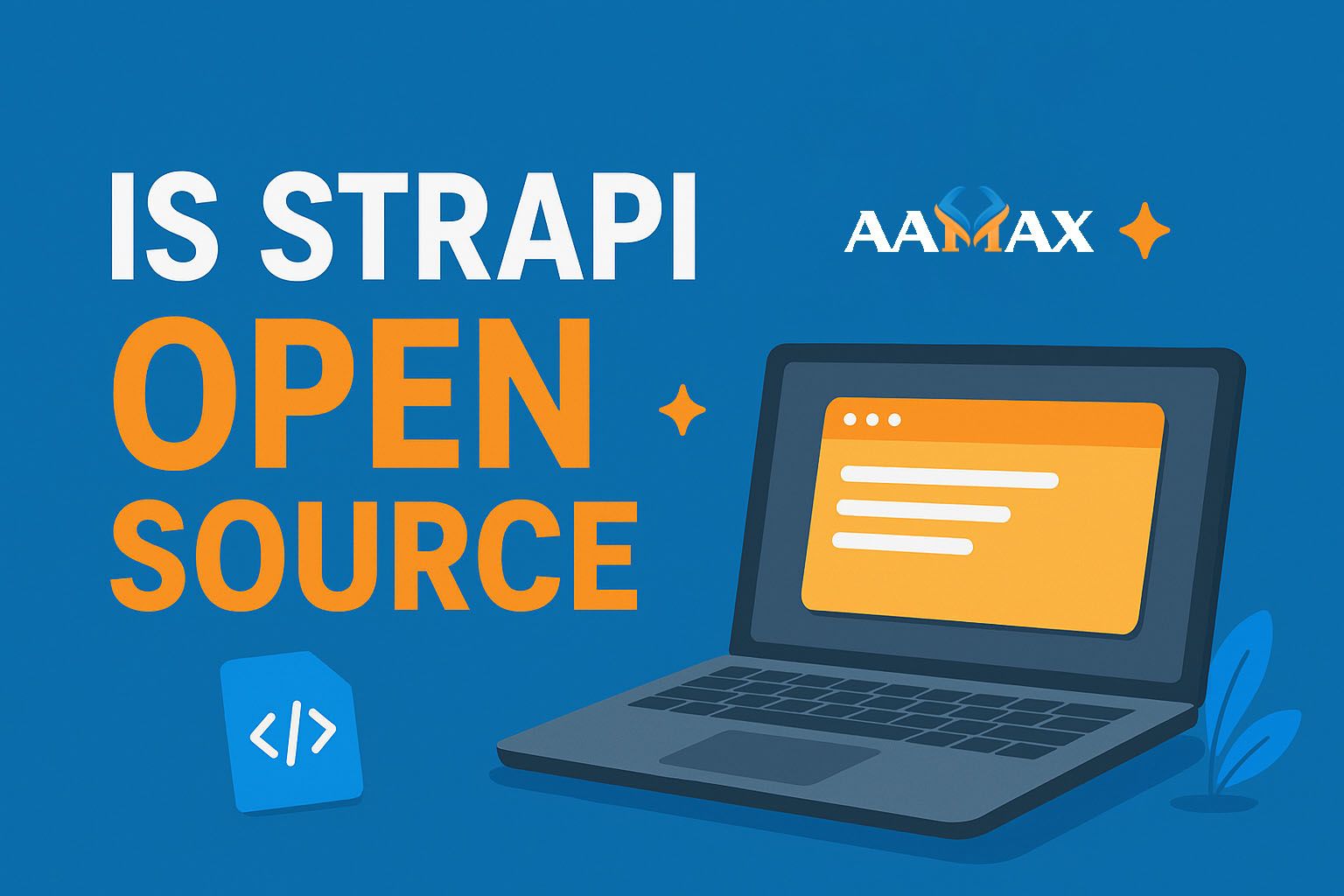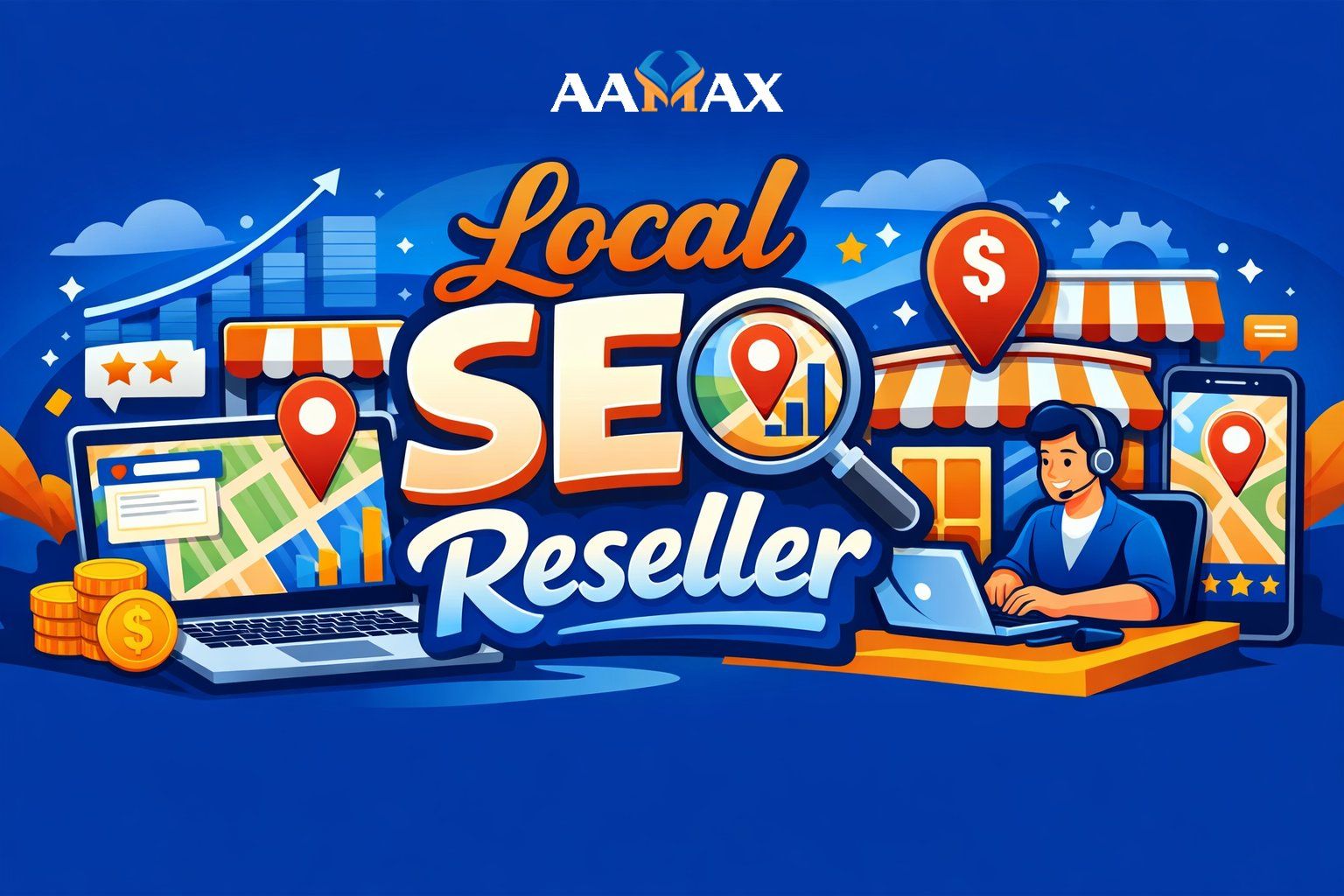
Is Strapi Open Source
This in‑depth guide explores what makes Strapi open source, how it benefits developers and organizations, and why it plays such a strong role in the future of content‑driven applications. If your business is considering Strapi for your technology stack or MERN‑based projects, you can also AAMAX for full MERN Stack Development services. AAMAX is a full‑service digital marketing company offering Web Development, Digital Marketing, and SEO services.
Strapi is widely recognized as one of the most flexible and developer‑friendly headless CMS platforms available today. The question "Is Strapi open source?" is one of the most common inquiries developers and businesses ask when exploring modern content management tools. The short answer is yes, Strapi is open source --- but there is much more to understand. From its licensing model to community involvement, customization abilities, scalability, ecosystem, and enterprise options, Strapi offers a complete open‑source experience backed by powerful features.
What Does "Open Source" Mean for Strapi?
Open source software refers to applications whose source code is publicly accessible for use, modification, and distribution. Strapi fully embraces this philosophy.
1. MIT License
Strapi is released under the MIT License, one of the most permissive open‑source licenses in the world. This allows developers to:
- Use it freely for personal and commercial projects
- Modify its core source code
- Redistribute modified or unmodified versions
- Integrate it into proprietary applications
The MIT License ensures maximum flexibility for businesses and engineering teams.
2. Publicly Available Source Code
Strapi's complete source code is available on GitHub. Developers can explore, contribute, and even fork the repository to create their own versions.
3. Community‑Driven Development
Strapi thrives on community contribution. Thousands of developers collaborate by submitting pull requests, reporting issues, suggesting new features, and contributing plugins.
Why Strapi Being Open Source Matters
Open‑source CMS platforms give organizations more freedom, control, and long‑term flexibility than proprietary systems.
1. No Vendor Lock‑In
Since the codebase is open, businesses are not restricted to the decisions of a commercial vendor.
2. Full Customization
Strapi allows you to tailor the logic, controllers, APIs, permissions, and admin panel without limitations.
3. Strong Security Through Transparency
Open‑source transparency allows:
- Independent audits
- Faster vulnerability detection
- Community‑driven security patches
4. Cost‑Effective for Businesses
Strapi's open‑source core empowers companies to build enterprise‑grade applications without high CMS licensing fees.
The Architecture of Strapi: Designed for Flexibility
Strapi's technical structure is ideal for custom development.
1. Node.js‑Based Backend
Its JavaScript backend integrates seamlessly with:
- React
- Next.js
- Vue
- Angular
- MERN Stack applications
2. REST and GraphQL APIs
Strapi automatically generates APIs based on your content structure.
3. Plugin System
Developers can extend Strapi via plugins to add new features or modify existing ones.
4. Database Flexibility
Strapi supports multiple databases including:
- MongoDB
- PostgreSQL
- MySQL
- SQLite
Strapi's Ecosystem: More Than Just a CMS
The open‑source ecosystem surrounding Strapi includes:
1. Plugins Directory
A wide range of community and officially built plugins.
2. Marketplace
Themes, templates, starters, and integrations built by contributors.
3. Community Forum & GitHub Discussions
A strong support system for troubleshooting and best practices.
4. Documentation
Extensive and beginner‑friendly documentation makes scaling easier.
Is Strapi Really Free?
Yes --- Strapi's open‑source core is free. However, Strapi also offers paid Enterprise Editions with additional RBAC permissions, SSO integrations, and premium support. The open‑source version remains fully functional for most developers and businesses.
When to Use Strapi
Strapi is an ideal choice for:
- SaaS platforms
- E‑commerce solutions
- Mobile backend services
- MERN stack applications
- Multi‑channel digital experiences
- Marketing websites
- Internal tools and dashboards
Its open‑source model makes it perfect for projects that require full ownership and customization.
Benefits of Strapi for MERN Stack Development
Since Strapi uses Node.js, it is naturally compatible with the MERN ecosystem.
1. Fast API Development
Strapi allows developers to generate APIs instantly.
2. Strong Integration with React
React frontends can connect to Strapi using REST or GraphQL effortlessly.
3. Scalable for Enterprise Applications
Ideal for high‑traffic, multi‑environment deployments.
Why Businesses Choose Strapi
Key reasons companies adopt Strapi include:
- Flexibility
- Customization
- Speed of development
- Open‑source freedom
- Strong community
- Performance
- API‑first structure
Limitations of Strapi (and How Open Source Helps)
Although Strapi is powerful, it has limitations:
1. Upgrades Can Require Manual Adjustments
Open‑source nature allows patching and customizing easily.
2. Learning Curve for New Developers
Strapi's documentation and community help bridge the gap.
3. Some Enterprise Features Are Paid
The open‑source core remains strong enough for most use cases.
Future of Strapi as an Open‑Source Platform
Strapi continues to:
- Add new features
- Improve performance
- Expand plugin ecosystem
- Encourage community involvement
Its open‑source philosophy ensures long‑term innovation.
Conclusion
So, is Strapi open source? Absolutely --- and proudly so. Its MIT License, active community, transparent development, and flexible architecture make it one of the best open‑source headless CMS platforms available today.
If your business wants to take advantage of Strapi for powerful MERN‑based applications, high‑performance APIs, or scalable digital platforms, you can hire AAMAX for professional MERN Stack development services, web development, digital marketing, and SEO solutions.
FAQs: Is Strapi Open Source?
1. Is Strapi completely open source?
Yes, Strapi's core is fully open source under the MIT license.
2. Is Strapi free for business use?
Yes, Strapi Open Source is free for both personal and commercial use.
3. Does Strapi offer paid plans?
Yes, the Enterprise Edition includes additional features such as SSO and advanced RBAC.
4. Can I modify Strapi source code?
Absolutely --- Strapi encourages customization.
5. Is Strapi good for MERN Stack projects?
Yes, Strapi integrates exceptionally well with MERN Stack Development







